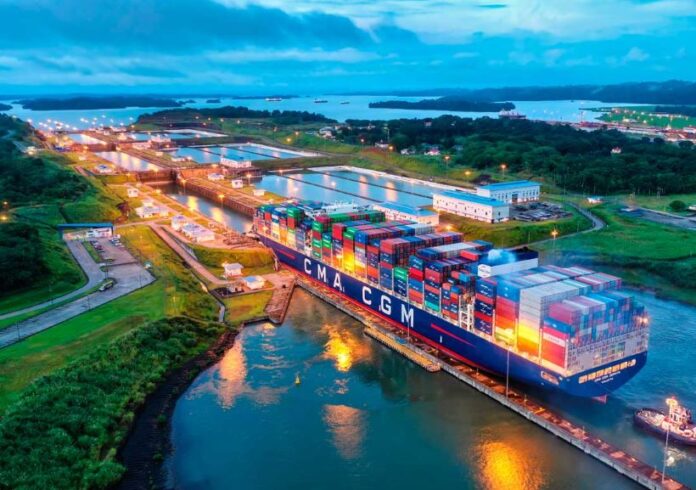Panama City — The administrator of the Panama Canal, Ricaurte Vásquez, reaffirmed on Friday that the crucial waterway will remain under Panamanian control and open to commerce for all nations, countering assertions by U.S. President-elect Donald Trump suggesting the United States should reclaim control of the canal.
In an exclusive interview with The Associated Press, Vásquez dismissed Trump’s allegations that China controls the canal’s operations. He warned that any deviation from current operational protocols would lead to “chaos.”
Vásquez clarified that Chinese companies managing port facilities at either end of the canal are part of a Hong Kong-based consortium that secured operations through a competitive bidding process in 1997. He also noted that U.S. and Taiwanese companies operate other ports along the canal.
Trump’s Controversial Remarks
Trump has previously suggested that the United States might need to retake control of the Panama Canal, even hinting at the possibility of military intervention. “The Panama Canal is vital to our country,” Trump said earlier this week, describing the fees charged for canal transit as “ridiculous.”
Panama’s President, José Raúl Mulino, firmly rejected Trump’s comments, emphasizing that the canal will remain under Panamanian sovereignty.
Neutrality and Operational Integrity
Vásquez reiterated that the Panama Canal operates under a neutrality treaty, ensuring equal access to ships of all nations. “The most sensible and efficient way to manage the canal is to uphold the established rules,” Vásquez said.
The treaty provides expedited passage only to U.S. warships, while all other vessels, including U.S.-flagged ships, adhere to the same uniform fee structure. Requests for special treatment are routinely denied to maintain fairness and transparency, Vásquez added.
Historical Context
The Panama Canal, completed by the United States in the early 20th century, was transferred to Panama on December 31, 1999, under the terms of a 1977 treaty signed by President Jimmy Carter. The 51-mile canal connects the Atlantic and Pacific Oceans, offering a shorter alternative to the treacherous voyage around Cape Horn.
Approximately 70% of the maritime traffic passing through the canal originates from or is destined for U.S. ports, underscoring the waterway’s strategic importance.
Addressing Fee Increases
Responding to criticism of transit fees, Vásquez stated that recent increases, the last of which was implemented this month, were part of a planned schedule. Any future adjustments would undergo public consultation to ensure transparency.
“The pricing rules are uniform for all vessels transiting the canal,” Vásquez said.
The canal’s operation has faced challenges in recent years due to drought, which reduced reservoir levels and forced a cut in daily transit slots. To mitigate the impact, administrators increased reservation fees for shippers, maintaining operational efficiency despite the reduced capacity.
Commitment to Global Commerce
Vásquez underscored Panama’s commitment to keeping the canal operational during critical times, including the COVID-19 pandemic. “It is an enormous responsibility,” he said. “Our international commitment is to ensure the canal remains open to the world.”
The Panama Canal continues to play a pivotal role in global trade, enabling seamless maritime transit while remaining steadfast in its principles of neutrality and fairness.



